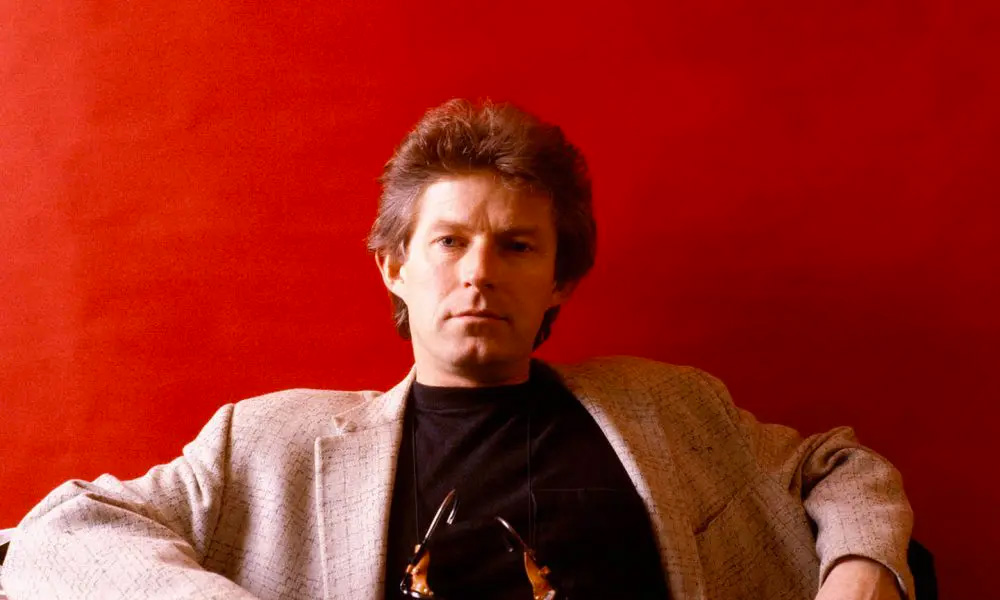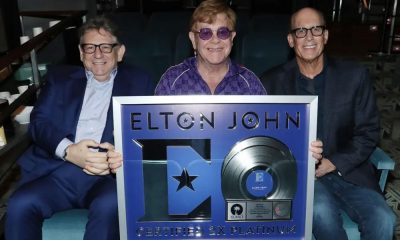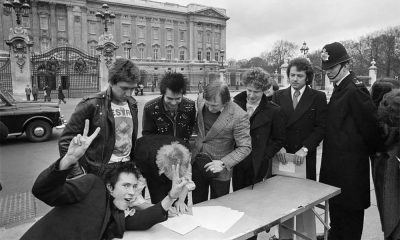Features
Best Don Henley Songs: An Introduction To The Songwriter Extraordinaire


Don Henley was never the most prolific artist in pop music: In the 40 years since the Eagles’ original breakup he’s released five solo studio albums and precious few non-album tracks. Taken together they present an artist who only records when he’s got something to say, and who’s never been afraid to throw his fans a curveball. This imaginary ten-track compilation is meant as a crash course in solo Henley, taking in highlights from each of his phases. It’s definitely not a greatest-hits compilation since there are already two good ones in print, Actual Miles and The Very Best of Don Henley. Rather, this is a selective taster of a few essentials and some of our favorite deeper cuts.
Listen to the best Don Henley songs on Apple Music or Spotify.
“Johnny Can’t Read” (from I Can’t Stand Still, 1982)
The first single from Don Henley’s solo debut, this song served notice that his solo career would not be Eagles redux. Its jittery New Wave sound was a lot closer to The Cars. It also signaled that solo Henley would be about hard-hitting social commentary, here taking on the idea of students getting an academic pass if they’re good at sports. Though FM radio jumped on this at the time of release, it doesn’t appear on either of Henley’s greatest hits collections, making it the forgotten Henley hit.
“Dirty Laundry” (from I Can’t Stand Still, 1982)
Don Henley’s breakthrough solo hit continued the modern New Wave sound, even with two other Eagles (Joe Walsh and Timothy B. Schmit) lending a hand. It takes on a topic he knew a few things about; namely tabloids and their appetite for celebrity blood. Suffice to say, he got even, but the song was right on target about where journalism was headed. No wonder it retains a place of honor in latter-day Eagles sets.
“The Boys of Summer” (from Building the Perfect Beast, 1984)
This album and its followup were the high-water mark of solo Don Henley, spawning seven Top 40 hits between them. This is a contender for the quintessential Henley song, full of sharp observations and drenched in California sunshine. With a vocal performance for the ages, it pledges unchanging love during changing times. Though the song began life as a Mike Campbell demo for Tom Petty & the Heartbreakers, it took Henley’s lyric to bring it to life; the line about the Deadhead sticker on the Cadillac still resonates.
“Sunset Grill” (from Building the Perfect Beast, 1984)
The fourth and last single from Perfect Beast didn’t do as well chart-wise as the rest, being a little more epic and challenging. But it’s as close as you’ll get to a “Hotel California” followup, visiting a dead-end bar in roughly the same neighborhood. The tune is perfectly haunting, and the story takes a surprise turn at the end: The narrator may have checked out long ago, but you know he’ll never leave. Like “Hotel” it ends with a climactic guitar solo, this one by Danny Kortchmar on synth guitar.
“Who Owns This Place?” (from The Color of Money soundtrack, 1986)
There aren’t a lot of stray Don Henley tracks but here’s a good one that fell through the cracks. He wrote it for the 1986 Scorsese film, where it appeared alongside fresh tracks by Mark Knopfler, Eric Clapton, and others. Henley’s tune echoes the dark mood of the film. Like many of the 80s tracks he produced with Danny Kortchmar, it has a sleek sound with huge drums and synths, but the trade-offs with the female backup chorus aren’t a million miles from Eagles territory.
“I Will Not Go Quietly” (from The End of the Innocence, 1989)
A contender for the heaviest rock track in Don Henley’s catalogue, this is also one of the deep cuts that should have been a single. The six-minute track boasts a sweeping lyric, in part about holding onto love and getting the hell out of a small town, but also about Henley defending his own space in the rock landscape. The studio band (mostly an overdubbed Kortchmar) sounds like hopped-up metal kids, and Henley’s voice blends remarkably well with that of guest singer Axl Rose.
“The Heart of the Matter” (from The End of the Innocence, 1989)
After all these heavy tracks, Don Henley calls on his ability to break hearts with a love ballad. He came up with a gem to close the third album, and recorded it in old-school style: No big synths or whomping drums here, just a guitar-based sound that suits the emotive vocal. But if the music harks back to younger days, the lyric is entirely grown-up: The singer learns that his old flame has finally found someone new. All he asks for is “forgiveness, even if you don’t love me anymore.” Callow young guys don’t write that kind of lyric.
“The Garden of Allah” (from Actual Miles, 1995)
One of three new tracks on the Actual Miles compilation, this dark-humored tune finds Don Henley meeting up with the Devil, who admires Henley’s car and professes to be pretty satisfied with the direction consumer society has gone. The setting is appropriately a once-glamorous, long-demolished Sunset Boulevard hotel (which really existed). This was effectively a last hurrah for the synth-heavy Perfect Beast sound, and one of the last times Henley wrote in the sweeping epic style.
“Taking You Home” (from Inside Job, 2000)
After an eleven-year break and an Eagles’ reunion, it was a less spiky Don Henley who showed up on the next solo album. Inside Job is warm and melodic for the most part, gathering his longtime musical partners together once more. “Taking You Home” was new territory for Henley: a love song with a happy ending. Accordingly, it topped the adult-contemporary charts, making it something of a valentine for the fans who’d come with him this far.
“The Brand New Tennessee Waltz” (from Cass County deluxe edition, 2015)
Since Don Henley helped popularize country-rock with the Eagles, it’s surprising that it took until 2015 for him to make a full-fledged country album. Cass County proved to be a star-studded affair, with Henley doing new and classic tunes in the hallowed company of Merle Haggard, Dolly Parton, and others. One of its sweetest moments can be found on the deluxe edition: Originally on Jesse Winchester’s 1970 debut, “The Brand New Tennessee Waltz” was the kind of lilting, harmony-driven tune that inspired the Eagles and their contemporaries in the first place. He and duet partner Alison Krauss handle it with loving care, bringing Henley’s career to a satisfying full-circle moment.
Think we missed one of the best Don Henley songs? Let us know in the comments below.

-
Paul McCartney And Wings To Release Historic Live Album ‘One Hand Clapping’
-
Elton John Earns Multi-Platinum Plaque For ‘Diamonds,’ Shares ‘Step Into Christmas’ EP
-
Jon Batiste Announces ‘Uneasy Tour: Purifying The Airwaves For The People’
-
Best Political Punk Songs: 20 Essential Anti-Establishment Tirades





